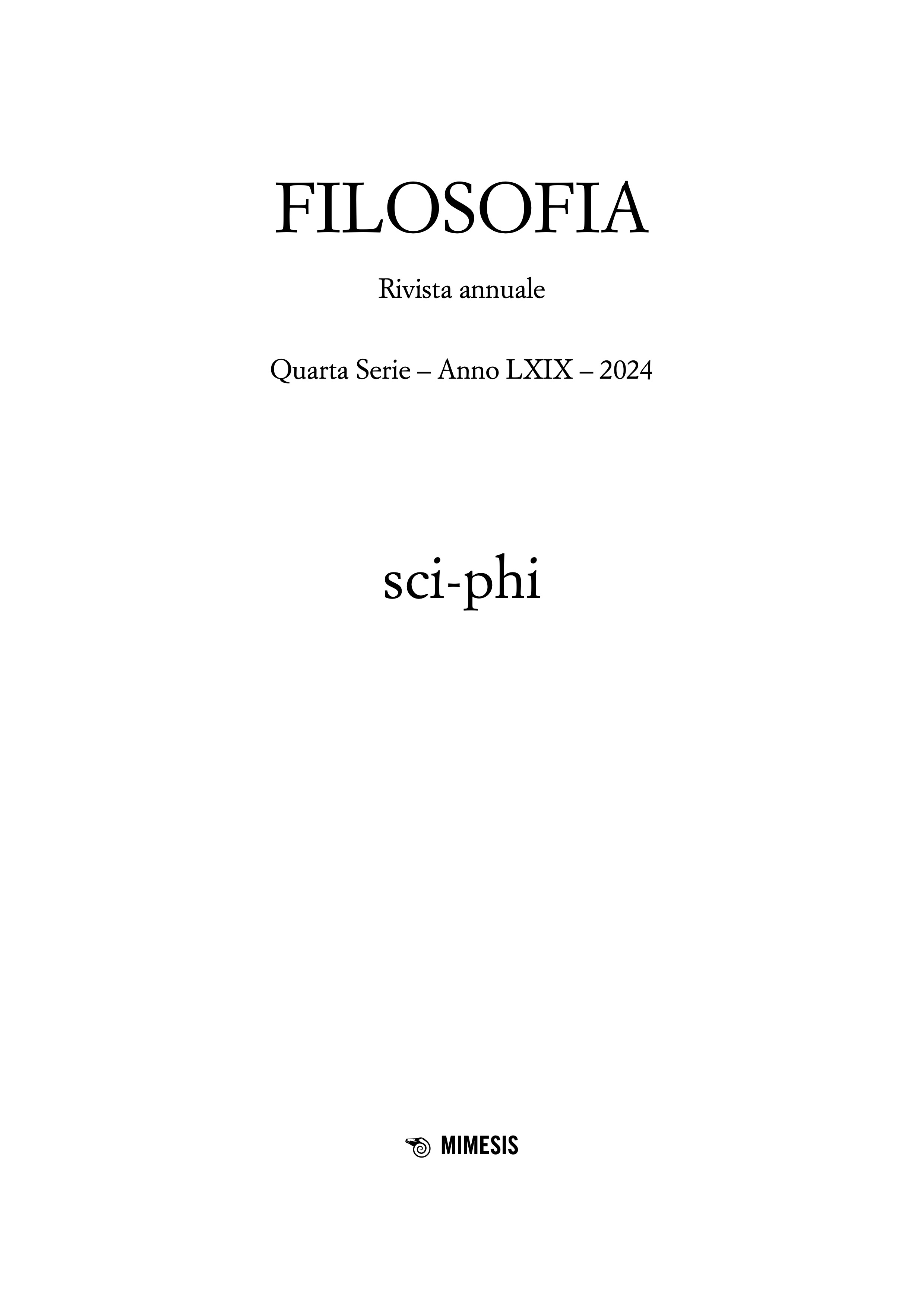Utopia as a method of embodying hope for the future in the present: Huxley’s ideal society in Island
DOI:
https://doi.org/10.13135/2704-8195/11194Keywords:
perfect society, utopia, future, prefiguration, HuxleyAbstract
Utopian studies have traditionally focused on the idea of the perfect society, proposing or criticising it. Now a new perspective is emerging that sees utopia as a method for thinking about alternatives to the present and prefiguring possible futures. In this sense, it actively contributes to the ethical-political debate by proposing and evaluating principles and practices to improve individual and collective life. In this essay, I have explored this perspective by focusing my analysis on Island, a utopian novel in which Aldous Huxley pragmatically explores the potential of utopia as an analytical tool for critically examining the present, embodying a desirable and feasible alternative and proposing its contribution to utopian thought. Huxley’s contribution can be summarised as a call to consider the future as open and feasible and to adopt a pragmatic attitude that allows alternatives to be thought and practised every day, since the future is created and recreated in every moment.
Downloads
References
Aristotle. 1995. Politics. Edited by Richard F. Stalley. Translated by Ernest Barker. Oxford: Oxford University Press.
Beauchamp, Gorman. 1990. “Island. Aldous Huxley’s Psychedelic Utopia”. Utopian Studies 1, n. 1: 59-72. https://www.jstor.org/stable/20718958.
Bedford, Sybille. 1973. Aldous Huxley: A Biography. Volume One: 1894-1939. London: Chatto & Windus.
Brooks, Van Wyck, edited by. 1963. Writers at Work: The Paris Review Interviews. Second Series. New York: The Viking Press.
Curtis, William M. 2011. “Rorty’s Liberal Utopia and Huxley’s Island”. Philosophy and Literature 35 (1): 91-103. https://dx.doi.org/10.1353/phl.2011.0009.
Dewey, John. 1971. “The Study of Ethics”, in John Dewey: The Early Works, 1882-1898, edited by Jo Ann Boydston, 221-362. Carbondale: Southern Illinois University Press.
Dewey, John. 1997. Democracy and Education: An Introduction to the Philosophy of Education. New York: Free Press.
Huxley, Aldous. 1931a. “To the Puritan All Things Are Impure”, in Music at Night and Other Essays, 153-162. New York: Doubleday Doran & Company.
———. 1931b. Tragedy and the Whole Truth in Music at Night and Other Essays, 3-16. New York: Doubleday Doran & Company.
———. 1950. Themes and Variations. London: Chatto & Windus.
———. 1959. Collected Essays. New York: Harper & Brothers.
———. 1968. Island. New York: Bantam Books.
———. 1969. Letters of Aldous Huxley. Edited by Grover Smith. London: Chatto & Windus. ———. 1972. Ape and Essence. New York: Vintage Books.
———. 1994. Brave New World. London: HarperCollins Publishers.
———. 1999. Moksha: Aldous Huxley’s Classic Writings on Psychedelics and the Visionary Experience. Edited by Michael Horowitz and Cynthia Palmer. Rochester: Park Street Press.
———. 2000. Brave New World Revisited. New York: Rosetta Books.
———. 2007. Aldous Huxley: Selected Letters. Edited by James Sexton. Chicago: Ivan R. Dee. ———. 2009. The Doors of Perception & Heaven and Hell. New York: HarperCollins Publishers. Huxley, Julian. 1965. Aldous Huxley 1894-1963: A Memorial Volume. New York: Harper & Row.
Izzo, David G. 2015. Fifty Years On: Aldous Huxley’s Island (1962) Reconsidered in Shipwreck and Island Motifs in Literature and the Arts, edited by Brigitte Le Juez and Olga Springer, 109–19. Leiden: Brill Rodopi.
Levitas, Ruth. 2013. Utopia as a Method. The Imaginary Reconstitution of Society. London: Palgrave MacMillan.
MacDonald, Alex. 2001. “Choosing Utopia: An Existential Reading of Aldous Huxley’s Island”. Utopian Studies 12, n. 2: 103-13. https://www.jstor.org/stable/20718318.
Mandich, Giuliana. 2022. “Il Futuro Come Utopia”. Cambio. Rivista Sulle Trasformazioni Sociali 12, n. 24: 15-25. https://doi.org/10.36253/cambio-13810.
———. 2023. Sociologie Del Futuro. Milano: Meltemi.
Mathisen, Werner Christie. 2001. “The Underestimation of Politics in Green Utopias: The Description of Politics in Huxley’s Island, Le Guin’s The Dispossessed, and Callenbach’s Ecotopia”. Utopian Studies 12 n. 1: 56-78. https://www.jstor.org/stable/20718238.
Matter, William W. 1975. “The Utopian Tradition and Aldous Huxley”. Science Fiction Studies 2, n. 2: 146-151. https://www.jstor.org/stable/4238937.
Meckier, Jerome. 2022. Aldous Huxley and Utopia. Berlin: Lit Verlag.
More, Thomas. 2016. Utopia. Edited by China Miéville. London & New York: Verso.
Morin, Edgar, and Anne Brigitte Kern. 1999. Homeland Earth: A Manifesto for the New
Millennium. Translated by Sean M. Kelly and Roger LaPointe. Cresskill: Hampton Press. Mureşan, Oana. 2014. “Where East Meets West in Harmony: An Interdisciplinary Approach to Aldous Huxley’s Island”. Philologica Jassyensia 10: 349-56. Diacronia.
Parsons, David. 1987. “Dartington: A Principal Source of Ispiration behind Aldous Huxley’s Island”. The Journal of General Education 39 (1): 10-25. https://www.jstor.org/ stable/27797098.
Plato. 2000. The Republic. Edited by G. R. F. Ferrari. Translated by Tom Griffith. Cambridge: Cambridge University Press.
———. 2016. Laws. Edited by Malcolm Schofield. Translated by Tom Griffith. Cambridge: Cambridge University Press.
Sargent, Lyman Tower. 2006. “In Defense of Utopia”. Diogenes 209: 11-17. https://doi.org/10.1177/0392192106062432.
Sartre, Jean Paul. 1967. “Existentialism” in Existentialism and Human Emotions, translated by Bernard Frechtman, 9-51. New York: Philosophical Library.
Sreenan, Niall. 2017. “Dreaming of Islands: Individuality and Utopian Desire in Post-Darwinian Literature”. Island Studies Journal 12, n. 2: 267-80.
Taylor, Mark. 2018. “Aldous Huxley’s Late Turn to Bergson and Island as Bergsonian Utopia”. Utopian Studies 29, n. 3: 362-79. https://doi.org/10.5325/utopianstudies.29.3.0362.
Deriu, Marco. 2022. Burning Bridges: pensare la discontinuità in Transizione o Mistificazione? Oltre La Retorica Della Sostenibilità Tra Dogmi Ed Eresie. Edited by TiLT, Territori in Libera Transizione, 95-108. Roma: Castelvecchi.
Watt, Donald J. 1968. “Vision and Symbol in Aldous Huxley’s Island”. Twentieth Century Literature 14, n. 3: 149-60. https://doi.org/10.2307/440780.
Zigler, Ronald. 2015. The Educational Prophecies of Aldous Huxley: The Visionary Legacy of Brave New World, Ape and Essence and Island. New York: Routledge.
Downloads
Published
How to Cite
Issue
Section
License
Copyright (c) 2024 Vanessa Regazzi

This work is licensed under a Creative Commons Attribution 4.0 International License.
This work is licensed under a Creative Commons Attribution 4.0 International License



